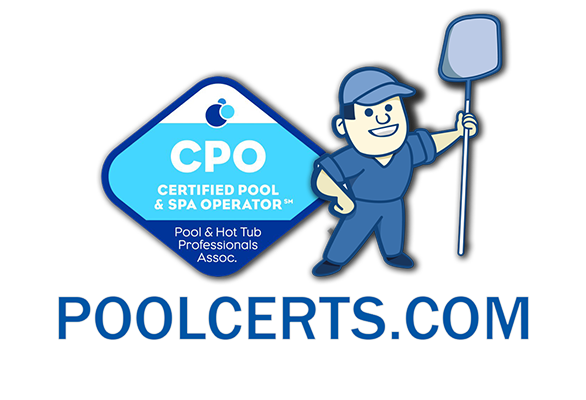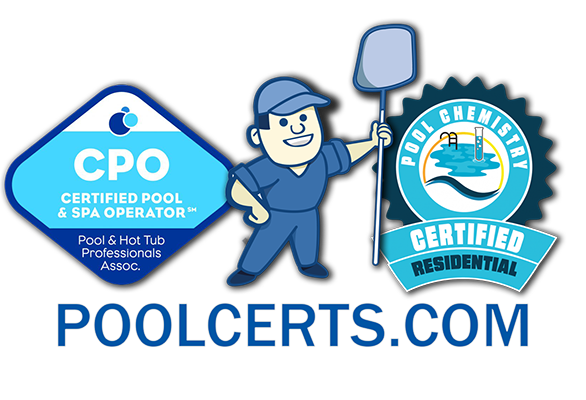Swimming is the 4th most popular recreational sport in America. In fact, about 15% of adults across the nation go swimming multiple times per year.
If you’re looking to make an impact on those looking to stay fit and enjoy themselves, getting pool operator certification may be a good choice. Read on to learn what a certified pool operator does and why you should become one.
What Is a Certified Pool Operator (CPO)?
A CPO is a nationally and internationally recognized certification. It is an entry-level certification stating that the recipient has basic pool-related knowledge.
It is intended for pool and spa operators and maintenance professionals. These experts may work at public or private pools including those in hotels and pool parks.
Many pool locations require a CPO to oversee their maintenance and operations. This is because CPOs reduce risks both in and around the water to ensure that visitors remain safe and healthy. They also ensure that all rules and regulations are met regarding pool maintenance, cleaning, and safety.
CPO certification is not the same as certification for service technicians. However, they are a great starting point for those looking to get into the thriving pool maintenance industry. They open the door to many entry-level and higher-level jobs so that you can turn your passion into a career.
What Are Common CPO Responsibilities?
CPOs have a wide range of responsibilities when they operate a pool or spa. This makes sense considering that their expertise spans many areas.
CPOs are experts in water chemistry and pool calculations. They understand the volume of a pool and what chemicals they need in what quantities. They also are experts on saturation index and chemical adjustment.
They also must understand water testing and sanitization. This means testing the pH of water, what chemicals are inside it, how clean it is, and more. CPOs use this information to balance water properly and make improvements.
Water filtration and circulation also are CPO responsibilities. They must be able to take care of, replace, and change various types of filters around the pool. They also must care for the recirculation system including the pump, heater, and chemical filter.
If there are any problems with a pool, the CPO also has the duty to troubleshoot those issues. Some problems may include bad pH levels, clouded water, and algae/plant growth.
Many CPOs also work in hot tub and spa areas. Part of the certification process is learning the special needs of these hot water environments. This will ensure that you can maintain the space comprehensively and effectively.
How Can You Meet CPO Certification Requirements?
To adequately meet CPO responsibilities, you will need to take a course in operating pools and spas. Luckily, this is easy when you work with Poolcerts. Our 100% online class is self-paced, independent, and remote.
Here’s what you need to do:
- Choose your state
- Pay $350 for access to the course (+ an extra $20 fee if you live in Florida)
- Select the review/exam date that works best for you
- Take the self-guided Pool Operator Primer course
- 8-10 hours
- On your own schedule
- Completely online
- Includes information from 18 chapters of the PHTA Pool and Spa Operator Handbook
- Complete the CPO review and exam on your selected date with your certified instructor
Once you pass, you can then add pool operator certification to your resume!
Course Outcomes and Goals
After concluding the course, you will understand:
- Your role as a CPO in operating pools and spas
- What constitutes a good management plan
- Resource materials and contacts that you can talk to about pool maintenance
- How to best regulate the pool environment (physically and chemically)
- What local regulations apply
- Industry standards within your state
- How to document testing and pool information
These takeaways will ensure comprehensive pool and water quality management. You also will learn about pool and spa design and systems. This allows you to better maintain the safety and wellness of the pool environment.
What Are the Benefits of Getting Certified?
Becoming a CPO is an extremely rewarding job. You get to keep people safe while they engage in recreational swimming. You also get to help competitive swimmers practice in a well-maintained environment.
There are all types of people that you can help as a CPO!
Pool operators also have a lot of job flexibility. You won’t necessarily be working 9-5 as an on-call operator. You simply will work when required.
But is it worth the effort? Most would say yes.
The average CPO makes $48,989 annually. However, this can range up to around $55,531. Those with CPO certification are more qualified and therefore have more leverage for higher pay.
In addition to being paid more, you also are more likely to be hired. Most pools and spas require a CPO based on industry standards and local regulations. You’re entering into a competitive market when you choose to get CPO certified.
Even if a pool does not require a CPO, higher-ups will still be more likely to hire you when you get the certification. CPO certification proves that you are knowledgeable about pool operations, regulations, and maintenance. This evidence means that you are a more competitive hire.
Get Pool Operator Certification Today
While many maintenance jobs are available, becoming a certified pool operator is one of the most rewarding. You get to keep pools safe, ensure they’re well-cleaned, and allow people to have fun and exercise while swimming.
Now that you know the basics of being a CPO, it’s time to get your pool operator certification. We’re committed to offering the top online classes available. Sign up for our online course to get your CPO certification online.


